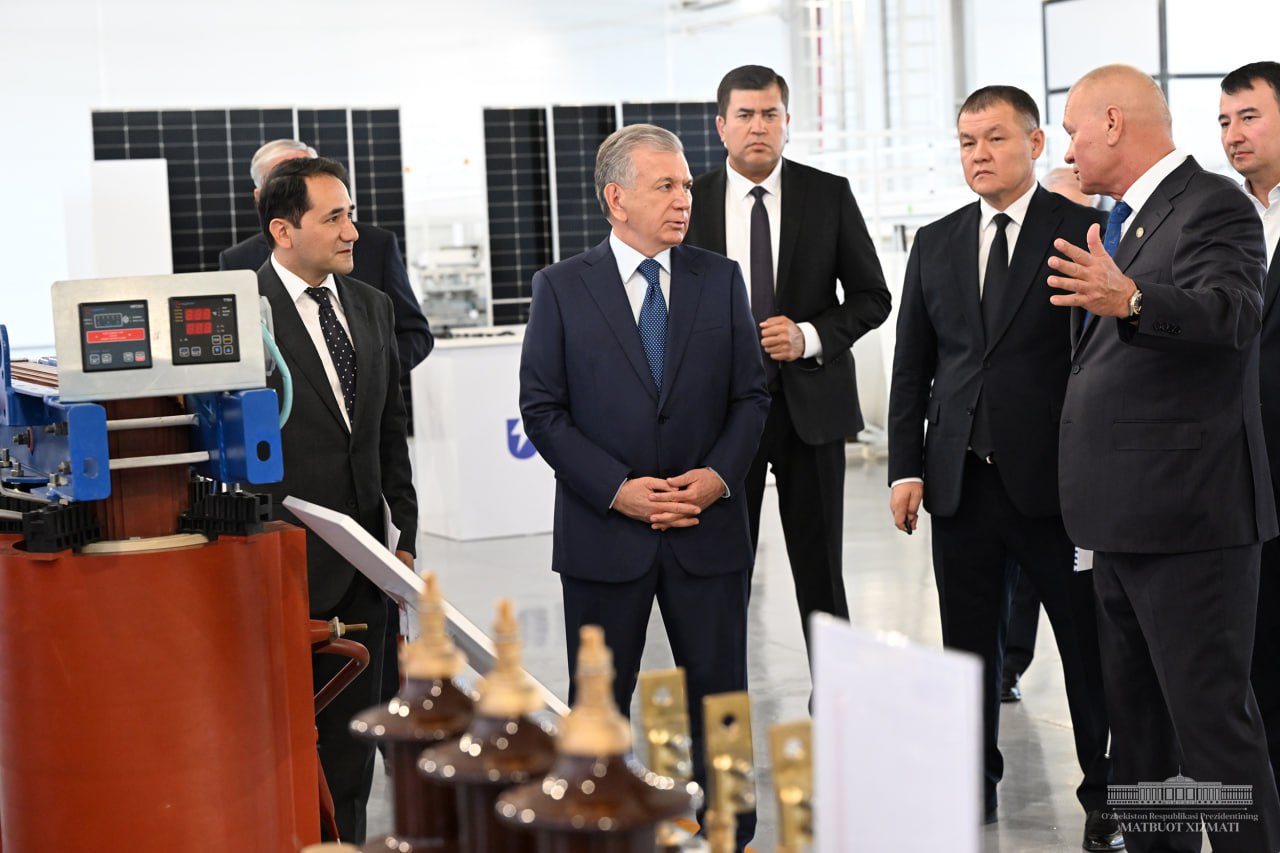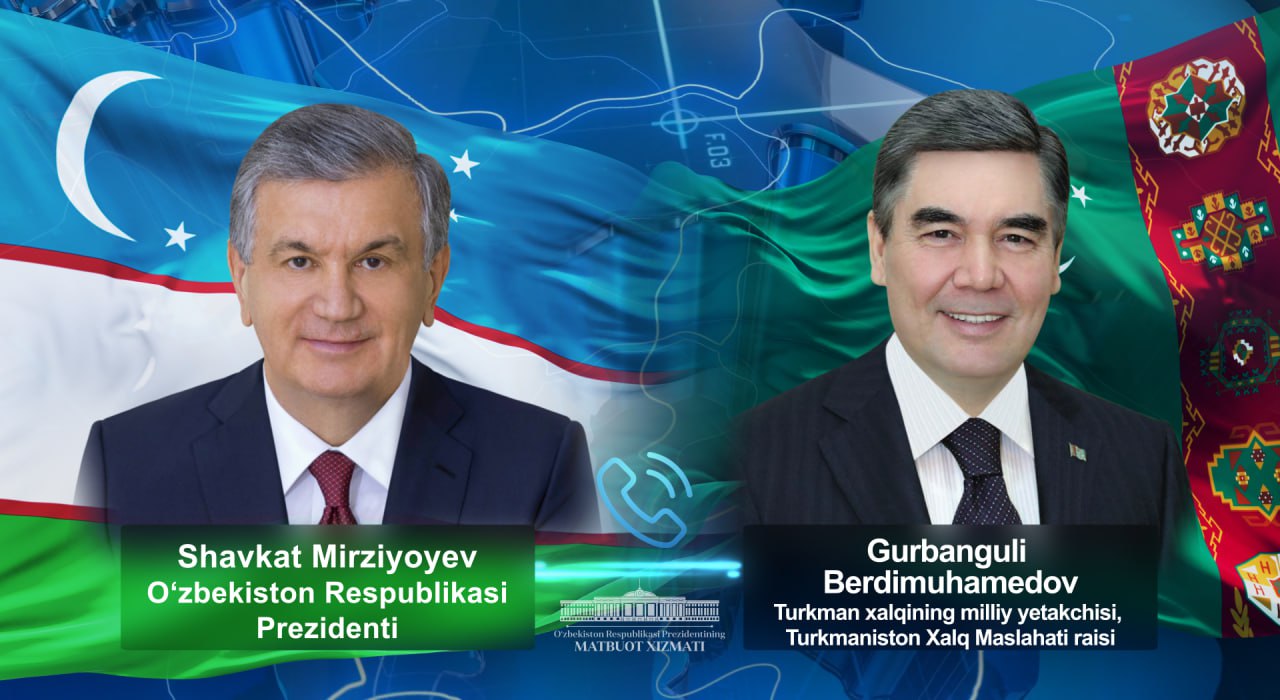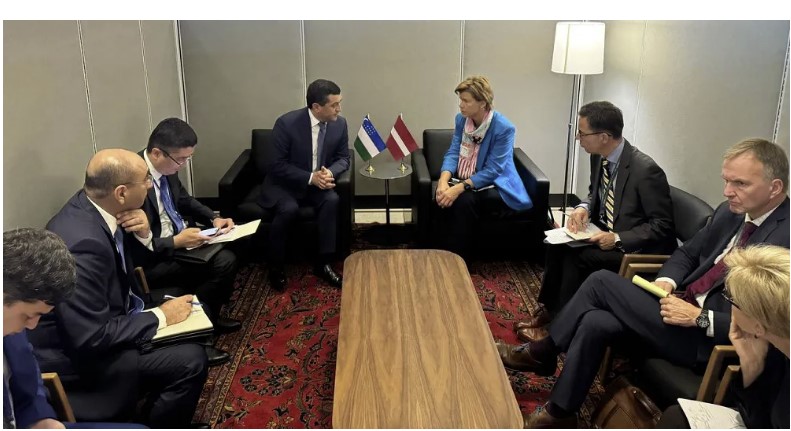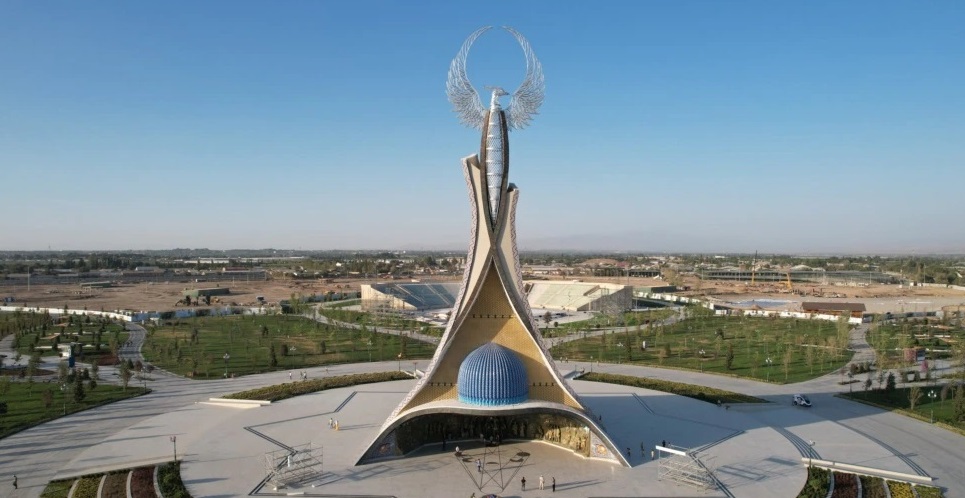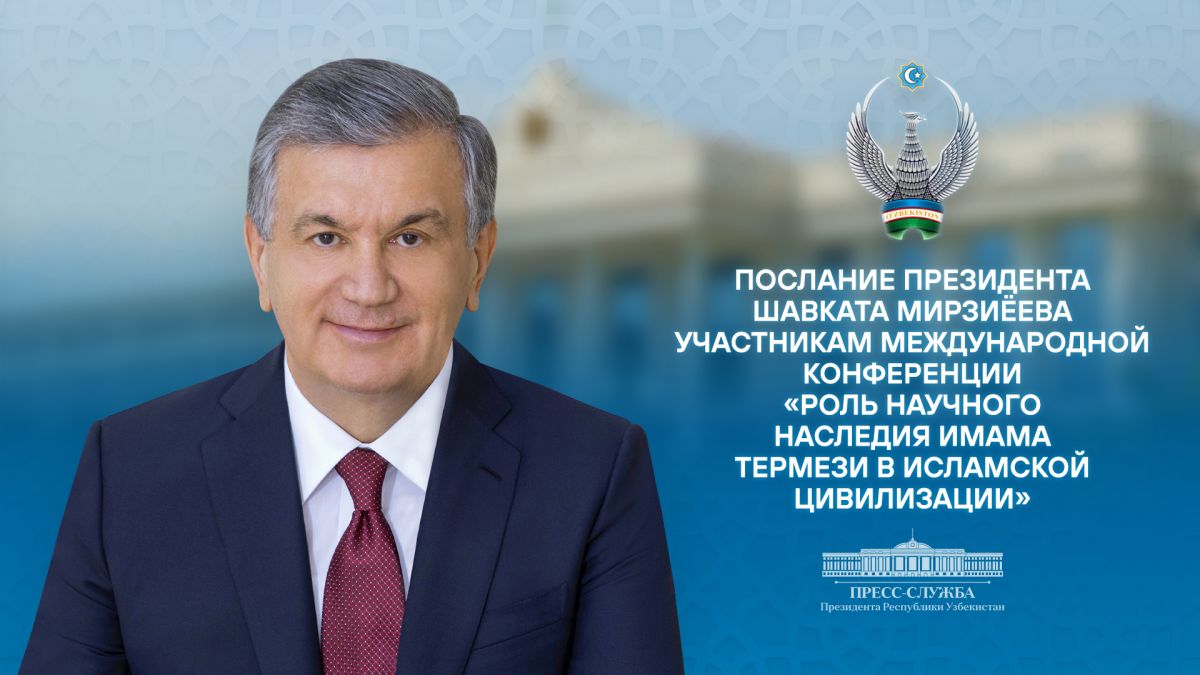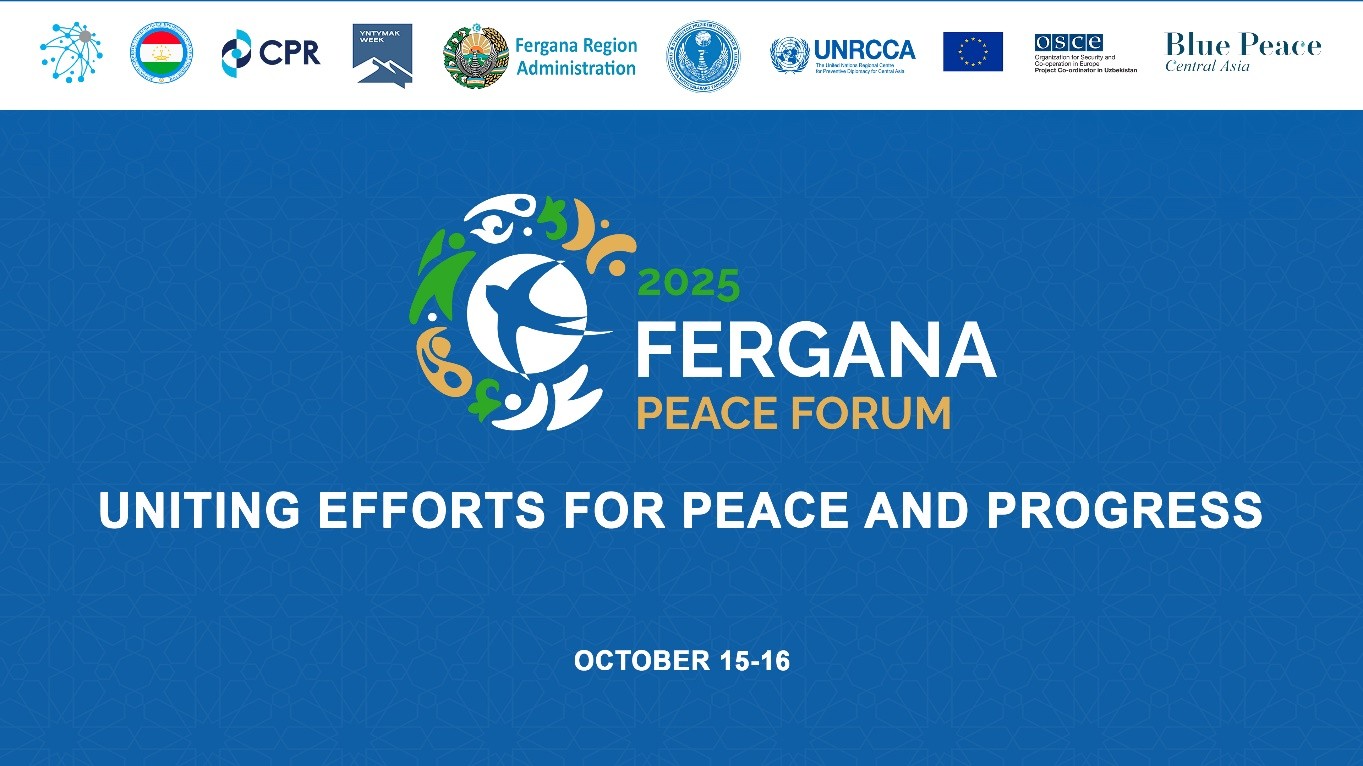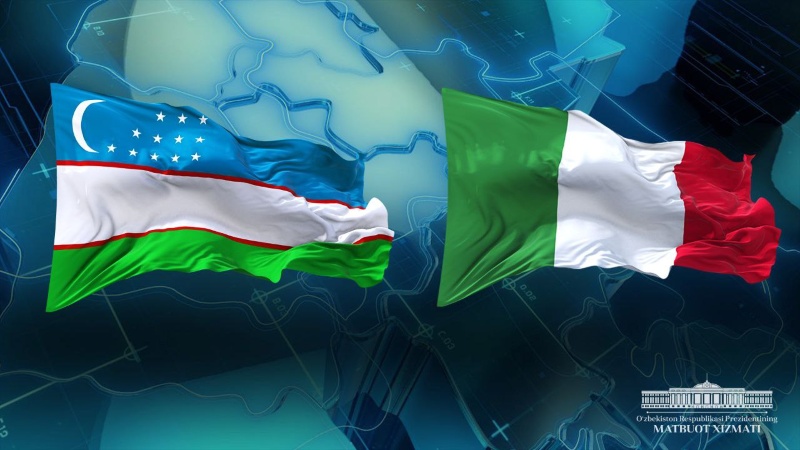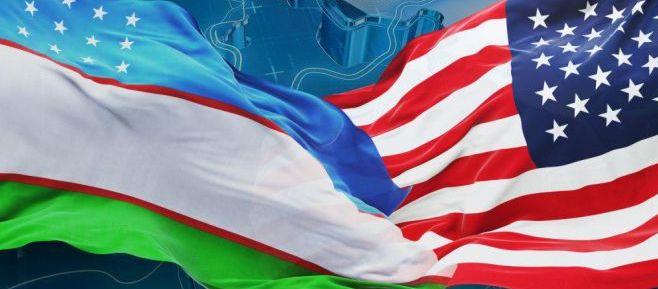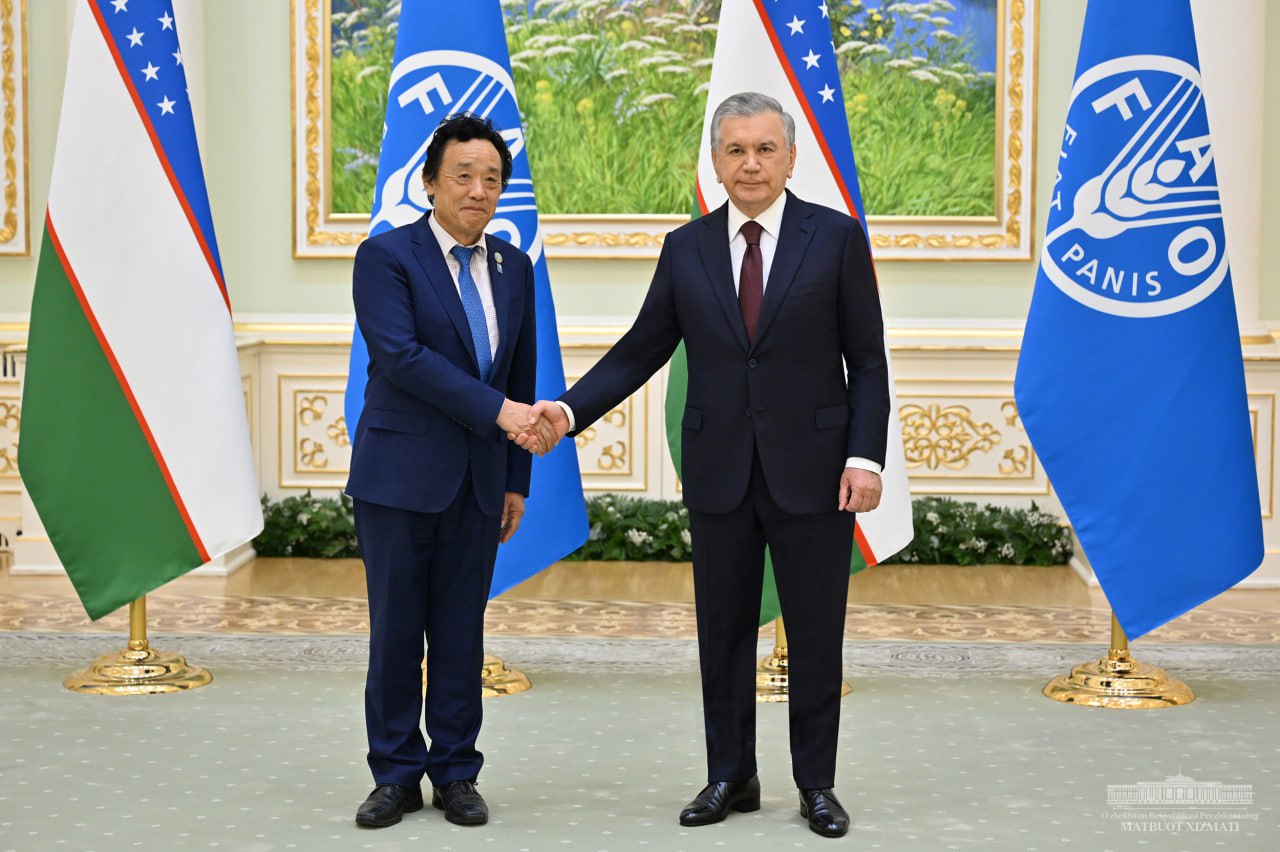Phone
Consular Issues
Phone
Uzbekistan news
We recommend
The President familiarized himself with the new project of the joint venture
📅 19.08.2024
Президент Шавкат Мирзиёев начал свою поездку в Республику Каракалпакстан с ознакомления с промышленным потенциалом региона.
Совместное предприятие “Nukus Eleсtroapparat” было введено в строй в 2017 году, оно производит силовое оборудование для электросетей. В июне текущего года здесь был запущен проект по изготовлению солнечных панелей стоимостью более 10 миллионов долларов. Оборудование было доставлено и установлено из Республики Корея. Производственный процесс полностью автоматизирован. Годовая мощность проекта составляет 273 тысячи единиц.
Это будет способствовать дальнейшему внедрению альтернативной энергетики в нашей стране. На сегодняшний день в различных сооружениях и домах установлены солнечные панели общей мощностью 600 мегаватт. Этот процесс продолжается.
Наряду с локализацией востребованной на внутреннем рынке продукции совместное предприятие получило возможность экспортировать продукцию на 4 миллиона долларов. Обеспечено работой 70 человек.
Глава нашего государства ознакомился с технологическим процессом, побеседовал с работниками. Ответственным лицам даны указания по увеличению количества таких предприятий и производству ими продукции с высоким спросом на рынке.
Здесь же была представлена продукция, производимая предприятиями отрасли.
На самом заводе установлены солнечные панели мощностью 125 киловатт. Полученная электроэнергия используется для внутренних нужд, а излишки реализуются в региональную электросеть.
За последние годы в нашей стране за счет инвестиций в размере 2 миллиардов долларов введены в эксплуатацию 10 солнечных и ветряных станций общей мощностью 2,6 гигаватта. Также ведется работа по 32 "зеленым" проектам мощностью 18,6 гигаватта общей стоимостью 19 миллиардов долларов. В целом к 2030 году намечено довести долю возобновляемых источников энергии в энергетическом балансе до 40 процентов.
The national leader of the Turkmen people congratulated the President of Uzbekistan
📅 24.07.2024The text of the article is in Uzbek language!
Uzbekistan: the fight against corruption is a continuous process
📅 24.06.2024
Uzbekistan has been undergoing a transformational journey since it changed political leadership in 2016. The nation is implementing extensive reforms aimed at spanning anti-corruption measures, business climate enhancements, judicial reforms, improving labour conditions, administrative efficiency, protection of human rights, and good governance.
Central to these reforms is a comprehensive anti-corruption agenda bolstered by strong laws and strategic plans. Reforms have targeted diverse sectors, with a focus on improving public administration, ensuring quality public services and information access, and overhauling the judiciary. Over the recent years Uzbekistan has made significant efforts to help its people feel confident that leaders in the national public and private sectors operate in a transparent and ethical way.
As we know, international standards in this area focus on the following elements, which are intended to increase effectiveness of prevention and combating corruption:
- Imposing additional restrictions for civil servants;
- Increasing transparency in the private sector, e.g. identifying beneficial owners;
- Strengthening the role of financial intelligence units in combating corruption;
- Strengthening corporate and individual liability for corruption offences;
- Supporting collective action initiatives.
In line with the abovementioned standards, since the adoption of the law on anti-corruption in 2017, Uzbekistan has doubled its efforts to prevent corruption in the public sector and has widened international cooperation to achieve this end. Since coming to power in 2016, President Shavkat Mirziyoyev has taken steps to liberalise the Uzbek economy and denounce corruption.
President Shavkat Mirziyoyev has begun liberalising the economy, which has started to attract significant investments from China and the EU and contributed to Uzbekistan’s strong economic growth. In particular, Presidential Decree of 2017 took steps to tackle the shadow economy by permitting the free purchase and sale of currency and the use of international mechanisms to set currency conversion rates. This decree eradicated the decades old “black market” where the difference between actual and official conversion rates was around 50%.
In 2020, President Shavkat Mirziyoyev established a new Anti-Corruption Agency via President Decree No.6013 and launched a mandatory online public procurement platform. The Anti-Corruption Agency is tasked with studying researching corruption, engaging with civil society, and enhancing transparency.
The number of arrests and prosecutions of public officials for corruption has increased. According to Prosecutor General’s Office, for example in 2022, there were a total of 3,116 convictions of public officials, of which 110 officials were from the national agencies, 264 from provincial agencies and 2,742 from city and district state bodies. The majority of these cases related to embezzlement (2,103), abuse of position (265), fraud (243) and bribery (169).
The fight against corruption has become a priority area of state policy in Uzbekistan. This can be seen in the conceptual regulatory acts adopted in recent years in this area, on the example of administrative reforms aimed at preventing corruption. The country has established an effective mechanism of countering corruption, including efficient normative-legal base and institutional foundations. More than 70 regulatory acts aimed at combating corruption in all sectors of state and public construction have served as a solid basis for the implementation of these reforms.
The Law on Combating Corruption, adopted in 2017 soon after Mirziyoyev came to power, is the main legal basis for countering corruption in Uzbekistan. The law requires state employees to inform their supervisors about corruption offences they may be directly or indirectly involved in and is meant to ensure protection for whistleblowers. Further, the law grants media outlets the right to request information on corruption offences from state agencies. It also envisages the mandatory examination of regulations being drafted by ministries and other state agencies to ensure they do not create new opportunities for corruption.
Information on state procurement is posted on the website www.d.xarid.uz. The open data portal (data.gov.uz), the registered database of legal entities and commercial entities (my.gov.uz) and other platforms play an important role today in ensuring the principles of openness and transparency and public control, which are the most effective tools for combating and preventing corruption. Licensing and permitting procedures have also been radically improved to completely improve the business and investment climate, remove unnecessary bureaucratic barriers and outdated regulations.
According to the National Database of Legislation of the Republic of Uzbekistan, other important legislative acts in the area of anti-corruption include:
- the Constitution (last amended in May 2023)
- the Criminal Code
- the Law on public civil service
- the Law on public procurement
- the Law on public-private partnerships
- the Law on distributing legal aid information and ensuring access to it
- the Law on the openness of state authorities and administration
- the Law on e-government
- the Law on public control
- the Law on countering legalisation of income derived from criminal activities, financing of terrorism and financing the proliferation of weapons of mass destruction (last amended in January 2019), which provides a legal framework for anti-money laundering.
The Civil Service Law, which entered into force in 2022, forbids civil servants from accepting gifts, from engaging in business activities and from opening foreign bank accounts or purchasing real estate abroad. It also introduces a system of mandatory declaration of civil servants' assets and income.
Under Article 7 of the 2017 Law on Combating Corruption, state agencies responsible for implementing the law on combating corruption include the Anti-Corruption Agency (ACA) established in 2020, General Prosecutor’s Office, the State Security Service, the Ministry of Internal Affairs, the Ministry of Justice, and the Department on Fighting Economic Crime under the General Prosecutor’s Office.
There is also a National Council on Combating Corruption and its territorial bodies that aim to coordinate the efforts of all the relevant institutions and develop state anti-corruption programmes. The ACA serves as the working body of the Council, which is headed by the Chair of the Senate. The ACA has a preventive mandate authorising it to request state agencies to provide documentation on their expenditure of public funds, sales of state assets and public procurement as well as on their investment projects and implementation of state programmes. It can also consider appeals of citizens and legal entities on corruption issues and conduct administrative investigations into corruption offences, the results of which should then be shared with law enforcement bodies.
Uzbekistan is a signatory to the United Nations Convention against Corruption (UNCAC) as well as to the Istanbul Anti-Corruption Action Plan, which is the main subregional initiative in the framework of the OECD Anti-Corruption Network for Eastern Europe and Central Asia (ACN). Uzbekistan has recently become a member of the Global Operational Network of Anti-Corruption Law Enforcement Authorities.
It should be emphasised that each regulatory legal act in Uzbekistan is being developed based on the principle – “legislation free from corruption”, systemic preventive measures in the practice of combating corruption are being strengthened, and the public oversight is supported by establishing interaction mechanisms with civil society institutions.
The mentioned and other measures have contributed to improving the fight against corruption in the country. This has also been evidenced in better positions of the country in international rankings. According to international governance indices, Uzbekistan has been improving its efforts to curb corruption. In recent years the country improved its ranking Transparency International’s Corruption Perceptions Index (CPI) by 42 positions. In 2023 alone the country improved its ranking there by 5 positions.
To sum up, we can conclude that Uzbekistan’s path towards creating effective financial, legal and institutional mechanisms of countering corruption has given its results. Although, it should also me noted that fighting against corruption is not merely a task for several years. It is an ongoing process and the government of Uzbekistan remains committed to take new steps for ensuring the success of its anti-corruption reforms in line with the international standards in this field.
Nilufar Doniyorkhodjaeva
Head of Department
Development Strategy Center
Tashkent, Uzbekistan
Ministers of Foreign Affairs of Uzbekistan and Latvia discussed issues on transport connectivity and logistics, IT and digital technologies, trade, and investments during their meeting in New York
📅 02.10.2024
TASHKENT, September 24. /Dunyo IA/. The Minister of Foreign Affairs of Uzbekistan Bakhtiyor Saidov held negotiations in New York City with the Minister of Foreign Affairs of Latvia Baiba Braže, reports Dunyo IA correspondent.
"Had a productive meeting with H.E. Baiba Braže, Foreign Minister of Latvia, – the head of the Ministry of Foreign Affairs of Uzbekistan wrote in his telegram channel. – We highly value the opening of the office of the Investment and Development Agency of Latvia in Tashkent. Transport connectivity and logistics, IT and digital technologies, trade and investments were on the focus of our meeting".
New powers of the new Parliament of Uzbekistan
📅 28.08.2024The text of the article is in Uzbek!
Participants of the International Scientific and Practical Conference “The Role of Scientific Heritage of Imam Termezi in Islamic Civilization”
📅 21.10.2024
Dear forum participants!
Dear guests!
I sincerely congratulate you, all those who make a worthy contribution to the development of the holy religion Islam, on the opening of the international scientific-practical conference dedicated to the study of the scientific heritage of the great muhaddis Imam Termezi in the homeland of outstanding Muslim scholars - in Uzbekistan.
It is gratifying that today's authoritative forum is attended by renowned specialists in the field of Islamic studies - prominent scholars and ulema, experts and researchers. In your person we see the continuers of the good traditions of the great thinkers who are the pride of the Muslim world - Imam Bukhari and Imam Termezi.
May the Almighty bless you, I wish you happiness and prosperity!
Dear friends!
Speaking about our outstanding ancestors-scientists, bright representatives of the Islamic world of the Middle Ages, we, of course, among the first names of Hazrat Imam Termezi.
We are rightfully proud of this incomparable person, the favorite disciple of the great Imam Bukhari, who was honored with the high rank of Sultan of Muhaddis, who has been glorifying our region for twelve centuries with his undying works and high human qualities.
Imam Termezi is recognized in the world as one of the six great muhaddis, his collection of hadiths is among the most revered and reliable sources, and the Muslim Ummah bows before the name of this outstanding man.
Another practical expression of such recognition is the fact that the topic for discussion at today's conference was the unique works of Imam Termezi “Ash-Shamoil al-Muhammadiyya” and “Sunani Termiziyya”, as well as important issues concerning the scientific heritage of the Ulema Termezis and its relevance today.
Dear participants of the conference!
In recent years, a great work has been carried out in our country to study and popularize the invaluable heritage of many of our thinkers-theologians who made a great contribution to the development of the Islamic religion, to honor their memory, to improve the places associated with their life and activities, including Imam Termezi.
It should be noted that a magnificent memorial complex has been erected in his honor in Sherabad district of Surkhandarya province, and an international research center, a specialized Islamic secondary school and an Islamic institute have been opened in the city of Termez bearing his name.
These institutions, together with the International Islamic Academy of Uzbekistan, the Centre for Islamic Civilization, the Hadith Scientific School and other religious educational and research organizations, are studying the rich heritage of Imam Termezi in a comprehensive and in-depth manner. In particular, works of the thinker are published, scientific researches, books and artistic works are dedicated to him.
I hope that after familiarizing yourselves with the work carried out in this direction within the framework of the conference, you will express your opinions and proposals on further activation of cooperation in this field.
We, the heirs of great scientists, emphasizing that Islam is a religion of peace, goodness and humanism, on the way of realization of good hopes and aspirations of mankind, consider it our most important duty to jointly enrich this incomparable spiritual treasure and preserve it for future generations.
I express my deep gratitude to the scientists and ulema of our country and to you, dear guests, to all figures of science who show real dedication for such a noble goal.
The doors of the leading research and educational institutions of Uzbekistan are always open for you.
Greeting you once again from the bottom of my heart, I wish you health, new achievements in your scientific and creative activities, and a successful conference.
Shavkat Mirziyoyev,
President of the Republic of Uzbekistan
Ministry of Investment, Industry and Trade of Uzbekistan Reports on Outcomes of Public Borrowings (2017–2025)
📅 22.01.2026
Uzbekistan’s total external debt amounted to $75.4 billion as of October 1, 2025.
According to the Ministry of Investment, Industry and Trade of Uzbekistan (MIIT), $37.4 billion of this amount accounts for the government’s external debt.
It is important to note that the issue of investment and external financing always attracts interest and raises questions. This is natural, as society wants to understand where resources come from and what results the country achieves.
The key principle here is simple: the purpose of attracting investment and resources is to improve living standards. This is not about “impressive reports” or “eye-catching figures,” but about tangible improvements felt in everyday life-jobs and household incomes, infrastructure, access to clean water, energy and transport, and quality social services.
The economic logic is also clear: for the economy to grow faster, resources are needed- capital, technology, equipment, and new markets. If a country stops attracting resources, growth slows down: fewer jobs are created, it becomes harder to modernize logistical and social infrastructure, expand water supply, and ensure affordable energy.
Therefore, Uzbekistan is consistently working to attract investments - to accelerate economic development, boost GDP, and ultimately improve both the quality and longevity of life. Notably, since 2020, life expectancy has shown steady growth - from 73.4 years to 75.1 years in 2024.
At the same time, what matters to people are not slogans, but measurable results - changes that can be seen and assessed.
By structure, Uzbekistan’s total external debt as of October 1, 2025, amounted to $75.4 billion. Of this, $37.4 billion is government external debt, while the remaining $38 billion consists of borrowings by private and state-owned enterprises without a government guarantee (corporate debt).
Notably, according to international classifications, Uzbekistan’s government debt level is regarded as moderate and manageable. The government’s external debt of $37.6 billion amounts to roughly 26% of GDP (with official GDP around $145 billion), well below the threshold levels that are generally seen as potentially risky for macroeconomic stability worldwide.
What has been achieved through government borrowings in 2017-2025:
- Reconstructed 1,564 km of highways
- Electrified 470 km of railway lines
- Built 6,793 km of drinking water networks and 664 km of sewage networks
- Constructed 59 km of heat pipelines, 1,286 individual heating units, 166 water distribution facilities, and 31 sewage pumping stations
- Created 2,737 MW of additional electricity capacity and laid 1,106 km of high-voltage power lines
- Commissioned additional generation of 2,084 MW, producing 16,423 million kWh of electricity and 551.8 thousand Gcal of thermal energy
Modernization of Transport and Urban Services:
- Purchased 4 Boeing 787-8 aircraft
- Acquired 2 high-speed Talgo-250 passenger trains
- Added 30 electric locomotives
- For the subway system: 70 cars and 29 train sets
- 1,900 buses
- 1,000 ambulances
- 541 units of equipment for household waste collection
- 13 heat boilers
Education and Social Sector:
- Established 119 educational and research laboratories in 60 universities
- Equipped 6,213 state preschool institutions with furniture, learning materials, and office equipment
Agriculture and Water Management:
- Restored 1,593.1 km of canals
- Modernized 3,396 hydraulic structures
- Drilled 423 vertical wells
- Established modern greenhouses on 2.2 thousand hectares and intensive orchards on 12.6 thousand hectares
- Built cold storage facilities with a capacity of 334.9 thousand tons
- Launched processing enterprises with a capacity of 258.2 thousand tons of products
- Created farms for 12.3 million poultry, 5,752 sheep, and 26.3 thousand cattle
These figures reflect already utilized borrowings. A significant portion of infrastructure and social sector modernization projects is still underway and will continue to deliver benefits as the work is completed.
Overall, as a result of the comprehensive measures implemented during 2017-2025, over 2 million jobs were created, exports increased by 270%, and GDP per capita grew by 418%.
What is fundamentally important is that resources can only be mobilized under strict rules, transparency, and oversight. In his Address to the Oliy Majlis and the people of Uzbekistan, the President highlighted that parliamentarians will oversee the entire project cycle - from selection and competitions to implementation and results. Project statuses, stages, and milestones will be published in real time, ensuring full transparency of competitions, tenders, and the fulfilment of obligations.
Uzbekistan’s approach to investment is clear and straightforward: the country needs resources for growth, while simultaneously ensuring full oversight, transparency, and measurable results for the population. This is exactly how the work is organized - openly, in stages, with clear accountability.
Dunyo IA
Fergana to host the First Fergana Peace Forum
📅 13.10.2025
The first session of the Fergana Peace Forum, titled “Fergana Valley: Uniting Efforts for Peace and Progress” is scheduled for October 15–16, 2025, in the city of Fergana.
Next week, the city of Fergana will transform into a focal point for international dialogue and cooperation, hosting key stakeholders from across the region and beyond. This gathering underscores the city’s growing importance as a center for promoting peace, mutual understanding, and collaborative development in Central Asia.
The Forum will be organized by the Institute for Strategic and Interregional Studies under the President of the Republic of Uzbekistan (ISRI), jointly with the Center for Progressive Reforms, the Organization for Security and Co-operation in Europe (OSCE), the International Water Management Institute (IWMI), and the Peacebuilding Hub — a platform that brings together reputable international organizations specializing in peacebuilding and social cohesion.
Entitled “Fergana Valley: Uniting Efforts for Peace and Progress” the Forum is organized in partnership with the National Institute for Strategic Initiatives under the President of the Kyrgyz Republic, the Center for Strategic Studies under the President of the Republic of Tajikistan, and Institute of studying of the problems of Asian and European countries of the National Academy of Sciences of Tajikistan.
The two-day forum will bring together over 300 participants from Central Asian countries, the Commonwealth of Independent States (CIS), as well as from Asia, Europe, and the Americas.
Among the high-level guests are Head of the UNRCCA Kaha Imnadze, European Union Special Representative for Central Asia Eduards Stiprais, Director of the OSCE Conflict Prevention Centre Kate Fearon, Secretary-General of CICA Kairat Sarybay and Deputy Secretary-General of the SCO Sohail Khan.
A key feature of the upcoming session will be its inclusive nature, with participation from representatives of civil society, youth organizations, women’s associations, as well as expert and academic communities.
Leading international peacebuilding institutions such as Berghof Foundation (Germany), the Martti Ahtisaari Peace Foundation (Finland), the PeaceNexus Foundation (Switzerland), and the Stockholm International Peace Research Institute (SIPRI) will also be at the Forum. Reflecting a commitment to be inclusive, the Forum will also draw participation from youth, women groups and the academia circle.
The Forum aims to create a standing platform for promoting dialogue, mutual trust, good-neighborly relations, and for developing a shared strategy for the development of the Fergana Valley.
The forum’s agenda includes discussions on ensuring stability and sustainable development in the Fergana Valley, unlocking its economic potential, strengthening cultural and humanitarian ties, and expanding the roles of the private sector, youth, and civil society.
The Forum will see the first observation of the “Yntymak Day” (“Day of Unity”) which celebrates the unity in diversity spirit of communities in Fergana Valley.
Among the anticipated outcomes of the forum is the adoption of a Communiqué calling for the establishment of a unified space of friendship, good-neighborliness, and sustainable development in the Fergana Valley.
At the 80th session of the United Nations General Assembly, the President of Uzbekistan, Shavkat Mirziyoyev, underlined that “the era of closed borders, unresolved disputes and conflicts in Central Asia has receded into the past. In recent years, the volume of mutual trade, investment and transport flows in our region has increased fivefold. Joint investment funds, cross-border trade and industrial cooperation zones are being established, while major infrastructure projects are under implementation”.
The President of Uzbekistan emphasized that “today marks the beginning of the formation of a New Central Asia. Thanks to its unity, stability, and growing regional identity, it is securing an increasingly strong position as an independent actor in the system of international relations”.
“Peace in Fergana Valley has been made possible by strong commitments in Uzbekistan, Kyrgyzstan and Tajikistan and by the diverse communities who have transformed differences into strength. The First Peace Forum on Fergana Valley will showcase how this political resolve and communities’ bond could usher peace,” said Eldor Aripov, Director of ISRS.
According to him, “The Ferghana Forum is intended to create a new image of the Ferghana Valley as a space of peace, harmony, and opportunity,” demonstrating that the political will of the countries’ leaders and the unity of their peoples can ensure stability and prosperity in the region”.
Dunyo IA
On May 28-29, the Prime Minister of Italy will pay an official visit to Uzbekistan
📅 27.05.2025
Strengthening the Peace Agenda: Uzbekistan Aims to Advance Constructive Initiatives within the Peace Council
📅 19.02.2026
On 17–19 February, the President of Uzbekistan, Shavkat Mirziyoyev, will pay a visit to the United States and take part in the inaugural meeting of the Peace Council, a new international body established as a multilateral platform to promote dialogue and the peaceful resolution of pressing global and regional conflicts.
The Peace Council was founded in January 2026 at the World Economic Forum in Davos, where the founding charter was formally signed in a ceremony attended by heads of state and government, as well as representatives of several founding countries.
Launched earlier this year, the initiative has garnered the support of a number of states, including Uzbekistan, which joined as a founding member, thereby reaffirming its commitment to the principles of peaceful diplomacy, multilateral engagement, and shared responsibility for maintaining international stability.
The establishment of the Peace Council represents a logical continuation of the international community’s efforts to develop effective mechanisms for conflict prevention and to seek political and diplomatic solutions to the most acute crises of our time, particularly in the Middle East.
Uzbekistan’s participation in the creation of this structure reflects Tashkent’s consistent foreign policy course aimed at promoting dialogue, respect for international law, and the rejection of force-based scenarios. The country’s position on the Palestinian issue—grounded in support for a just and sustainable peace settlement in accordance with United Nations resolutions—has gained additional international resonance within the framework of this initiative.
The upcoming participation of the Uzbek head of state in the first meeting of the Peace Council also aligns with the recent intensification of Uzbek–American political dialogue. Over the past six months, high-level contacts between Tashkent and Washington have significantly increased, signaling a qualitatively new stage in bilateral relations.
In September of last year, the President of Uzbekistan visited New York to attend a regular session of the United Nations General Assembly, where he held meetings with world leaders and heads of international organizations and discussed key issues on the global and regional agenda.
Further momentum was generated in early November 2025 during the Uzbek President’s working visit to the United States, which included talks with the U.S. President, as well as meetings with representatives of the American establishment, Congress, and business circles. Particular attention during the visit was devoted to strategic partnership, economic cooperation, investment engagement, and regional security, including the “C5+1” format, viewed by both sides as an effective mechanism for coordinating efforts in Central Asia.
Contacts between Tashkent and Washington have been maintained across various channels, including telephone conversations and interagency cooperation. An additional indication of growing mutual trust has been the expansion of economic dialogue and the establishment of new business cooperation platforms, reflecting a shared interest in deepening practical engagement. In the United States, Uzbekistan is increasingly perceived as a reliable, predictable, and responsible partner pursuing a balanced and pragmatic foreign policy.
Uzbekistan’s participation in the Peace Council is thus seen as further evidence of the country’s growing international standing and recognition of its constructive role in global affairs. For Washington, it also confirms that Tashkent is an important partner in advancing initiatives aimed at strengthening peace, security, and sustainable development across Eurasia and beyond.
Amid the intensification of political dialogue, Uzbek–American cooperation continues to expand across key areas. These include collaboration in regional security, support for economic reforms in Uzbekistan, the development of trade and investment, and the deepening of humanitarian and educational ties. Joint projects in energy, digitalization, infrastructure, and human capital development are laying a solid foundation for a long-term partnership.
In sum, the forthcoming participation of the President of Uzbekistan in the inaugural meeting of the Peace Council not only underscores the country’s active role in shaping a new architecture of international dialogue, but also complements the positive trajectory of Uzbek–American relations. The visit to the United States will undoubtedly contribute to elevating interaction between Tashkent and Washington to a stable strategic level, serving the interests of both sides and the broader goal of strengthening peace and stability in the region and worldwide.
«Dunyo» IA
The "Vatandoshlar" Public Foundation announces a competition for young compatriots abroad to visit the "Anor" summer resort in Uzbekistan!
📅 03.06.2025The text of the article is in Uzbek!
The President of Uzbekistan noted the importance of adopting a long-term program of strategic partnership with FAO
📅 06.09.2024
President of the Republic of Uzbekistan Shavkat Mirziyoyev met with Director General of the Food and Agriculture Organization of the United Nations (FAO) Qiu Dongyu on September 5.
The head of the authoritative branch structure of the United Nations system is in Tashkent within the framework of the ongoing International Forum on Food Security and Sustainable Development Goals for Landlocked Countries.
At the beginning of the meeting, the UN High Representative expressed his deep gratitude to the head of our state for supporting the successful holding of the forum, which is attended by representative delegations from more than 30 countries of the world.
In the course of the conversation, the sides considered issues of further expanding the strategic partnership between Uzbekistan and FAO in effectively responding to contemporary challenges and threats.
The sides noted with satisfaction the fruitful results of practical interaction achieved in recent years. Thus, the qualitative indicators of implementation of the country cooperation program for the period until 2025 have doubled.
There are 34 projects in the active phase of implementation. Over the last year, 7 new projects were launched, including in the field of agriculture, school feeding, veterinary medicine, agrochemistry and other spheres.
The importance of preparation and adoption of a new five-year partnership program was emphasized.
Special attention was paid to promising joint projects and activities in the field of digitalization of the agro-industrial complex, exchange of advanced knowledge and experience, attraction of innovations and investments in improving the fertility of the land fund, cultivation and processing of organic agricultural products, modernization of irrigation systems, creation of modern clusters and logistics centers, research and development.
There was also an exchange of views on the global and regional situation related to food security.

